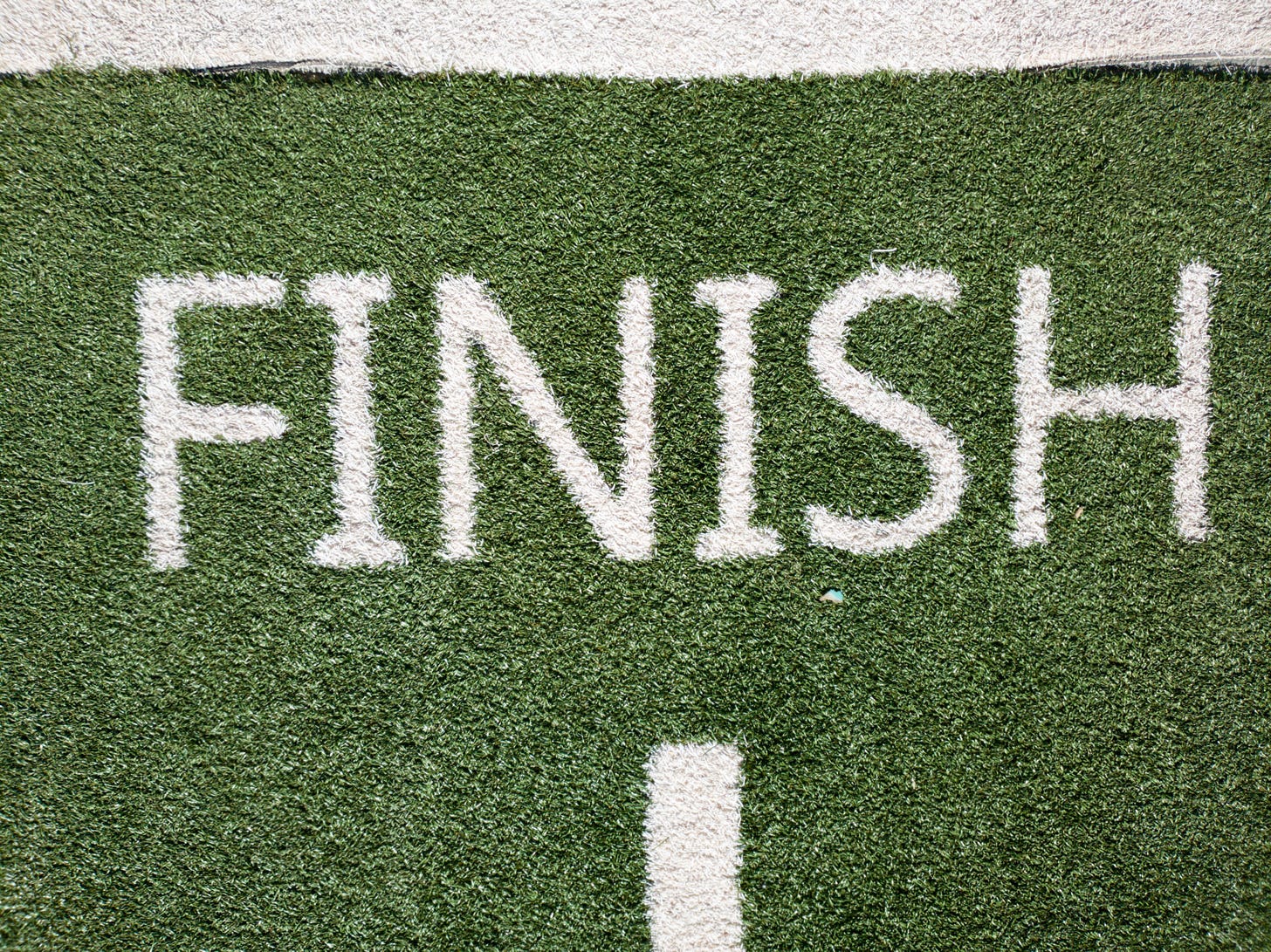
Last month I focused on nourishing myself because I was burnt out and wanted to recuperate my energy. I spent most of October making big decisions and orchestrating our wedding, which ended up being incredible. I’m grateful I was able to dedicate so much energy, time, and effort to help make the day so magical.
When the long days and late nights of the wedding were over I dialed up my nourishing practices: lots of sleep, lots of water, taking all of my supplements, and admitting to myself that I needed to remove some things from my to-do list so I could sustain and maintain my physical and mental health. Which leads me to the focus of today’s letter…
What do you do when you can’t do it all?
Last week I decided that it was not in my best interest to run the October 29th 5K race that I had signed up for in August. My wise mind knows that pushing my body to run a 5k while I’m still recovering from burnout is a recipe for MORE burnout and possible injury. Even though I logically understood why it was the right call, I still felt sad—it sucks to not be able to do something you were excited about and told thousands of people online that you were going to do. I took some space and time to feel my disappointment, settled into my decision, and now I’m in a space where I can reflect more generally on that experience.
It makes sense that we want to do it all.
I just read Fates and Furies by Lauren Groff and one of the characters, Mathilde, is an active biker and runner with sleek hair, stylish dresses, and a cunning brain. When I read about her hours-long bike rides, I felt a familiar twinge of desire: I want to “be the kind of person” who does that, too!
I used quotation marks around the idea of inhabiting an identity that’s tied to a behavior (being “the kind of person who does X”) because I recognize that I’m projecting a sense of moral worth onto an action. Sometimes we aspire to lifestyles or experiences that are fused with privilege and access and bolstered as “good” within an ableist, white supremacist, and classist culture.
I know that I don’t need to ride a bike for 80 miles to be successful, cool, or stylish, and yet I’ve internalized the idea that my life will improve exponentially the more times I drink lemon water and green juice, practice daily meditation and sun salutations, write three morning pages by 9am and turn off my screens after 6pm, forest bathe and grow my own food, concoct my own deodorant from my pantry staples, and oh my goodness—just writing this list is overwhelming me. I do find most of these things interesting, and I sometimes do some of them, but moralizing them as checkboxes I must cash in to earn the title of “the kind of person who does fill-in-the-blank” is not actually nourishing if it creates a dichotomy between doing everything and not being enough as a person.
I see this same obsession with productivity and hear the phrase “I want to be the kind of person who does X,” where X would require access to time, energy, executive functioning, external support (financial or otherwise), clear instructions, and lack of distractions—a list of things that are not accessible to everyone. You might choose to wake up an hour before your kids wake up to get writing done on a book chapter because you don’t have any other time to do it—but choosing to do that isn’t morally superior to writing 15 minutes on Tuesday and Thursday or scheduling five hours every other Sunday to speed-type a chapter draft and send it to your editor with typos still in it.
By the time you read this, it’ll be the first day of November and I’ll have missed the race on Saturday. I may feel a twinge of disappointment, but I’ll try to let it pass through me and cheer for myself from the sidelines as I sleep in and then go on a slow walk around the river.
Takeaways
I want to close by recommending a stellar book I recently finished: KC Davis’s How to Keep House While Drowning. Davis focuses on helping readers de-moralize their approach to completing care tasks, which she calls “the ‘chores’ of life: cooking, cleaning, laundry, feeding, dishes, hygiene” (4). I often call these “behind the scenes” or “invisible” labors.
Davis writes that “When you view care tasks as moral, the motivation for completing them is often shame. When everything is in place, you don’t feel like a failure; when it’s messy or untidy, you do.” (10). To reframe this concept of not doing it all equals shameful, Davis suggests in Chapter 6 that we aim to make our spaces functional through three layers: first and most important, keeping ourselves safe and healthy; then, if we have capacity, adding things that increase our comfort; finally, adding things that make us happy. Everyone’s levels of functionality, comfort, and happiness will differ. This approach helped me to reframe my experience of taking days to fold and put laundry away when I feel burnt out: if I had clean clothes and the things that needed to be wrinkle-free were hung up, it was actually totally functional to dig my leggings and tank tops out of the laundry bag.
xo,
Dr. Kate
For Your Consideration
Follow me on Instagram
My offerings: 1-on-1 Coaching and workshops and IPSP
Sign up for the waitlist for Perceptible Progress: A Goals Course
Order my book, Tend to It: A Holistic Guide to Intentional Productivity
Listen to my podcast interviews







